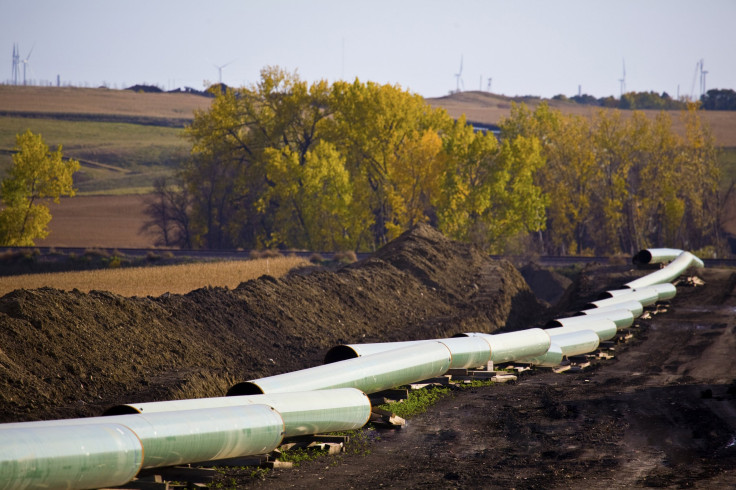Keystone’s Evil Twin? How A Recent Court Ruling Favored A Pipeline Project Similar To Keystone

The melodrama that is the Keystone XL pipeline just got a bit more interesting, as a federal judge ruled recently in favor of the construction of a similar pipeline that will carry oil sands down to U.S. Gulf Coast refiners.
The Flanagan South Pipeline of Enbridge Inc. (USA) (NYSE:ENB), which environmentalists are sure to peg as Keystone’s evil twin, will move oil sands and crude oil from a Flanagan, Ill., terminal, southwest of Chicago, to Cushing, Okla., and ultimately down to the U.S. Gulf Coast.
The 589-mile pipeline gives North Dakota and western Canada producers “timely, economical and reliable options to deliver a variety of crude oil supplies to refinery hubs throughout the heart of North America or as far as the Gulf Coast,” the company's website states.
Until recent years, U.S. crude was shipped north and east, from the oil hub in Cushing, but as more oil is produced in the Upper Midwest and Canada, refineries in the eastern and northern U.S., as well as in Canada, have not been able to keep up with the glut.
the proposed Keystone XL Pipeline is supposed to alleviate the glut, would bring oil sands from Alberta and crude oil from the northern U.S. to the Gulf Coast.
A major difference between the two projects is that Keystone needs a presidential permit because the pipeline crosses the U.S.-Canada border. President Barack Obama is the sole person who could approve the construction of the pipeline and has so far delegated the State Department to determine whether or not it is in the U.S. national interest.
The impasse over Keystone and Flanagan South stems from opponents who say extracting tar sands is extremely energy-intensive because it requires breaking down a semi-solid form of petroleum so it can flow through a pipeline, something that is not necessary for normal crude oil. Environmentalists also point to recent pipeline accidents and oil spills that have harmed wildlife.
Proponents, on the other hand, say the benefits of building the pipeline outweigh the environmental risks by reducing America's dependence on oil from hostile, unstable countries in the Middle East and elsewhere.
The debate jumped to center stage Nov. 13 when the U.S. District Court for the District of Columbia rebuffed a request by the Sierra Club and National Wildlife Federation for an immediate injunction against building the Flanagan South Pipeline.
Both groups alleged that federal agencies failed to assess adequately the environmental impacts of the privately owned pipeline, which they say would be in violation of the National Environmental Protection Act, the Clean Water Act and the Administrative Procedure Act.
“Plaintiffs have significantly overstated the breadth of federal involvement in the pipeline project and have failed to establish sufficiently that applicable federal statutes and regulations would require the extensive environmental review process that Plaintiffs seek,” Judge Ketanji Brown Jackson said in her ruling. “Moreover, Plaintiffs have fallen short of demonstrating that irreparable harm will result if the current construction proceeds during the pendency of this litigation, and the Court is not convinced that the balance of harms and public interest factors weigh in Plaintiffs’ favor.”
© Copyright IBTimes 2024. All rights reserved.






















